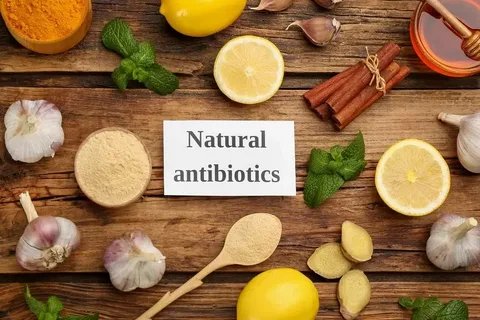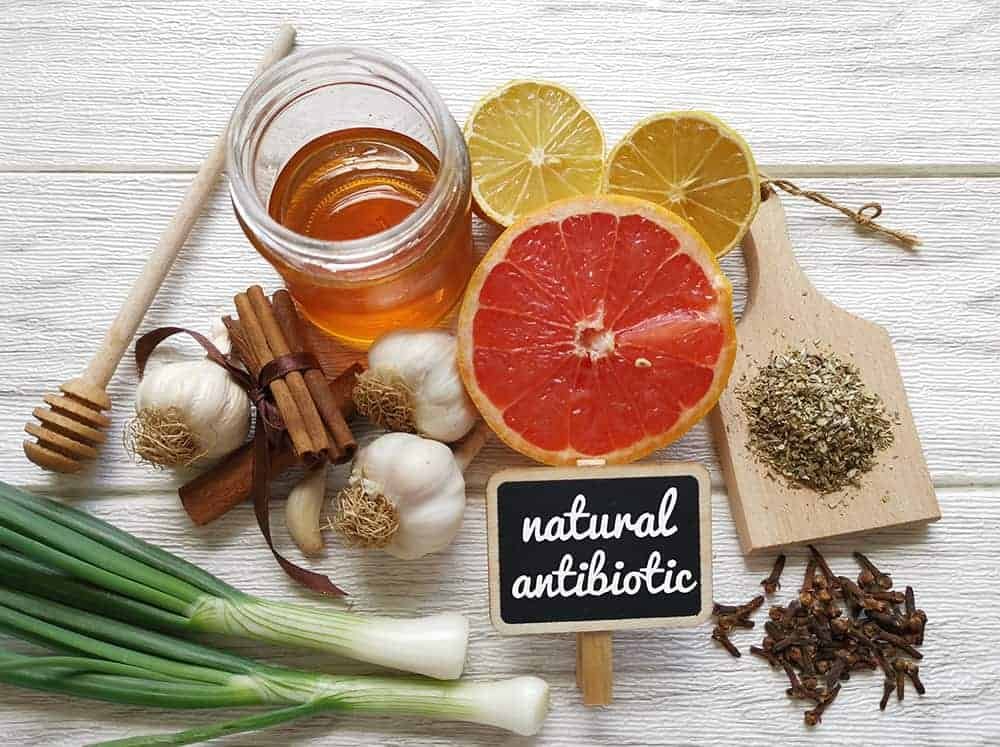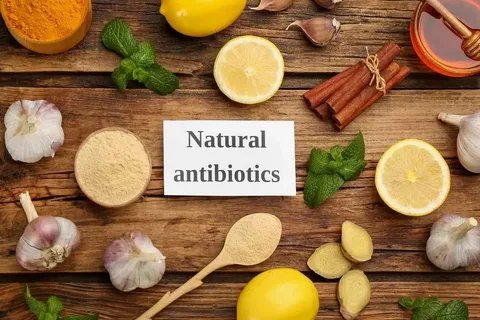Antibiotics are among the most important medical discoveries in history, saving millions of lives by treating bacterial infections. However, with the rise of antibiotic resistance, concerns about overuse and side effects are growing. While **synthetic antibiotics** are fast-acting and effective, they often come with risks, including resistance and gut microbiome imbalance. On the other hand, **natural antibiotics** such as garlic, ginger, and honey have been used for centuries as safe, sustainable alternatives.

In this article, we’ll compare synthetic and natural antibiotics, explain their pros and cons, and explore how natural remedies can support better long-term health.
—
## What Are Synthetic Antibiotics?
Synthetic antibiotics are man-made drugs designed to kill or stop the growth of bacteria. They work quickly and are often prescribed for conditions like respiratory infections, urinary tract infections, and skin infections.
**Advantages of synthetic antibiotics:**

– Rapid and powerful results.
– Standardized doses for accuracy.
– Life-saving in severe bacterial infections.
**Drawbacks:**
– Overuse can lead to **antibiotic resistance**, making infections harder to treat.
– Can disrupt the gut microbiome, leading to digestive issues.
– Possible side effects like allergies, nausea, or liver stress.
—
## What Are Natural Antibiotics?

Natural antibiotics are foods or herbs with antibacterial, antiviral, and antifungal properties. They work more gently than synthetic antibiotics and are less likely to cause resistance.
Some of the most effective natural antibiotics include:
– **Garlic** – Contains allicin, a compound with powerful antimicrobial effects.
– **Ginger** – Reduces inflammation and fights bacterial growth.
– **Honey** – Known for antibacterial and wound-healing properties, especially Manuka honey.
– **Turmeric** – Rich in curcumin, an anti-inflammatory and antimicrobial compound.
– **Oregano Oil** – Contains carvacrol, which helps fight bacteria and fungi.
—
## Synthetic Antibiotics vs Natural Antibiotics
FeatureSynthetic AntibioticsNatural Antibiotics**Speed of Action**Very fast, often within hoursSlower, gradual improvement**Resistance Risk**High, due to overuseLow, less prone to resistance**Side Effects**Digestive upset, allergies, microbiome imbalanceMinimal, usually safe**Accessibility**Requires prescriptionReadily available in kitchen or health stores**Sustainability**Can contribute to drug resistance crisisSafe, sustainable, eco-friendly
—
## Health Benefits of Natural Antibiotics
### 1. **Safe for Long-Term Use**
Unlike synthetic drugs, natural antibiotics can often be consumed regularly without harmful side effects.
### 2. **Supports Immunity**
Foods like garlic and ginger not only fight bacteria but also strengthen the immune system.
### 3. **Balances the Body Naturally**
Natural antibiotics work in harmony with the body’s systems, reducing inflammation while fighting infection.
### 4. **Affordable and Accessible**
Most natural antibiotics are common kitchen ingredients, making them budget-friendly.
—
## How to Use Natural Antibiotics at Home
– **Garlic Tea:** Crush 1–2 garlic cloves and steep in hot water for a powerful immune boost.
– **Ginger Tea:** Boil fresh ginger slices to soothe sore throats and fight infections.
– **Honey Remedy:** Take 1 teaspoon daily to heal wounds, coughs, and infections.
– **Turmeric Milk:** A golden drink that reduces inflammation and supports immunity.
—
## When to Use Synthetic Antibiotics
Despite the benefits of natural remedies, synthetic antibiotics are still essential in modern medicine. For severe bacterial infections like pneumonia, sepsis, or post-surgery complications, **synthetic antibiotics are life-saving** and cannot be replaced by natural alternatives.
The key is **responsible use**: only take antibiotics when prescribed, complete the full course, and avoid unnecessary use.
—
## Safety Tips and Precautions
– Natural antibiotics should complement, not replace, professional medical care.
– Always consult a doctor for serious infections.
– Allergic individuals should test small amounts first before consuming remedies like garlic or honey.
—
Both **synthetic and natural antibiotics** play important roles in health. Synthetic antibiotics act fast and save lives but can lead to resistance if overused. Natural antibiotics like garlic, ginger, and honey are safer, sustainable, and can be used daily to prevent infections and boost immunity.
By combining the strengths of modern medicine with traditional wisdom, we can fight infections more effectively while protecting future generations from antibiotic resistance.
